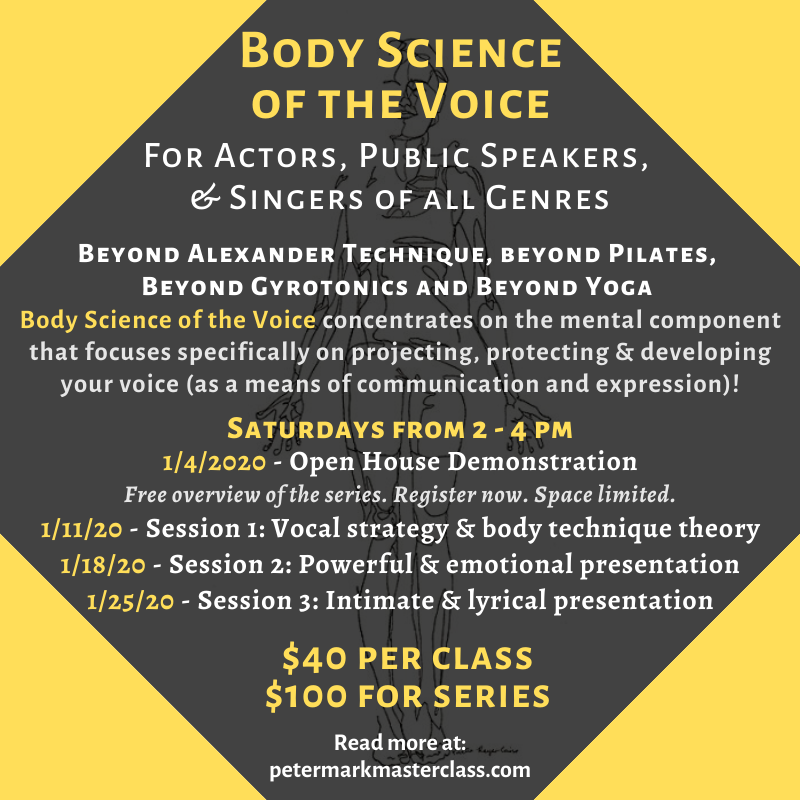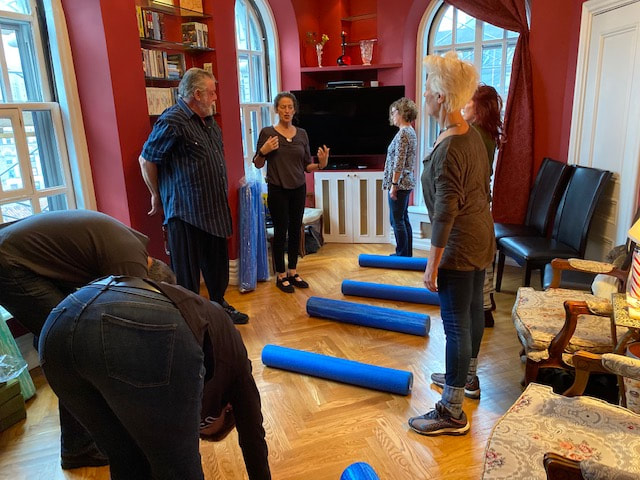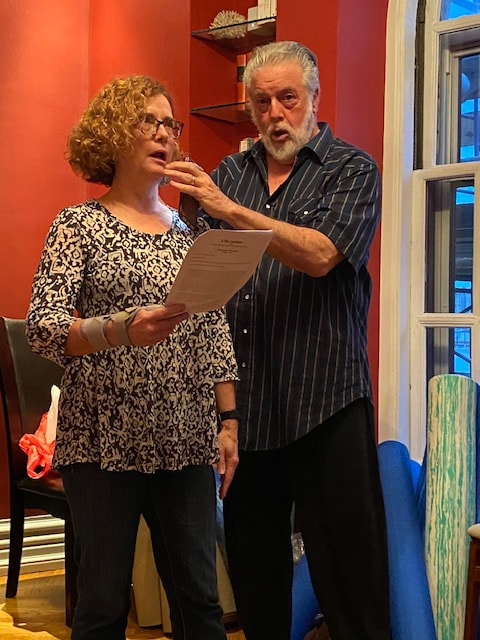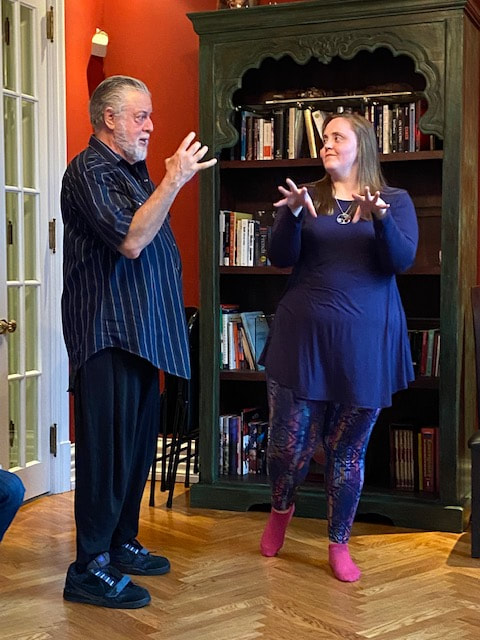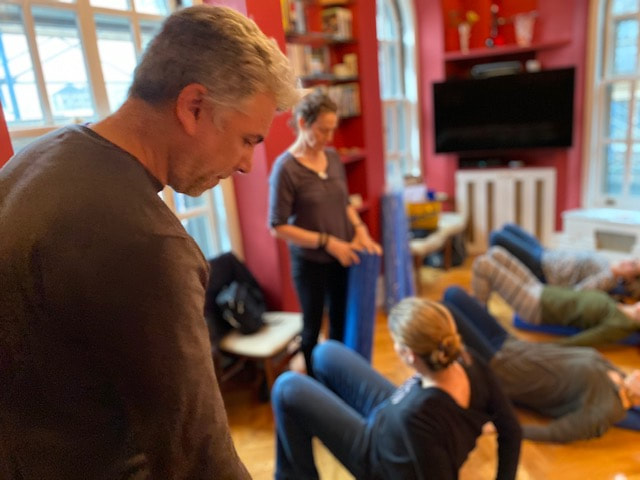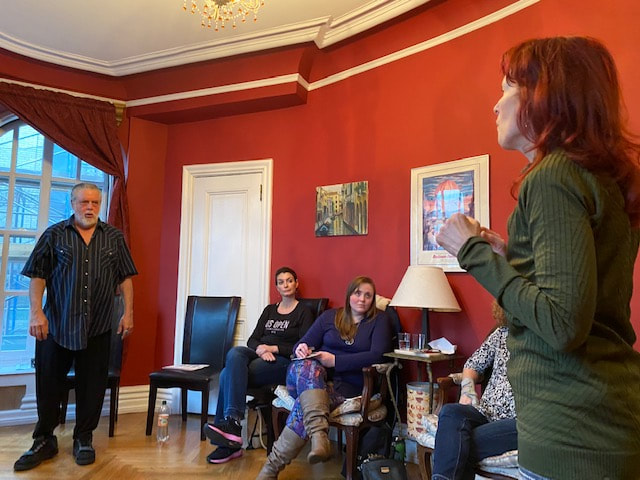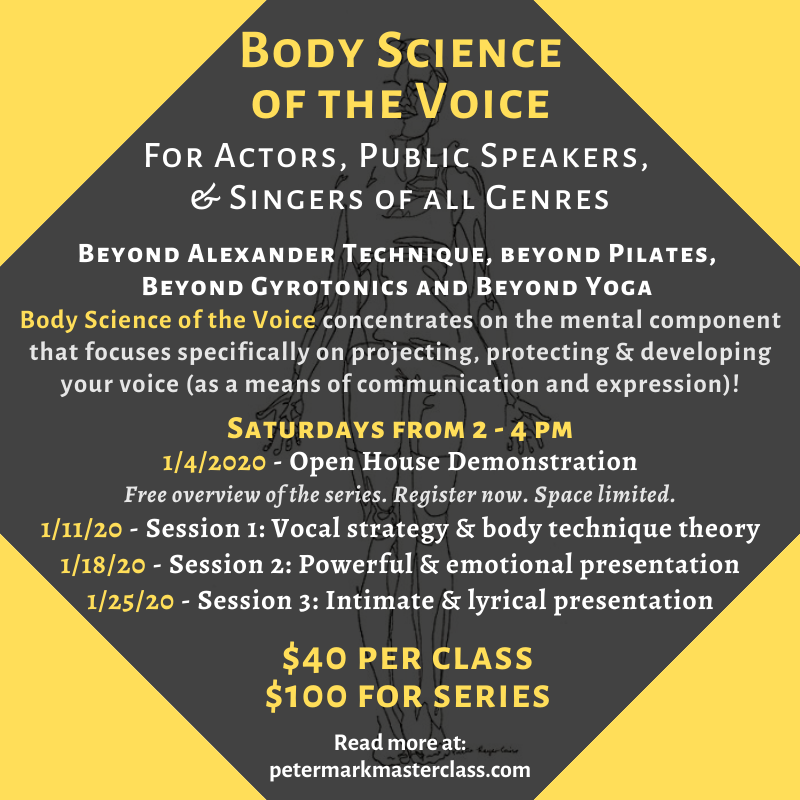WHY EVERY MUSICIAN WILL BENEFIT FROM LEARNING THE NEW SCIENCE OF FULL-BODY TECHNIQUE
Instumentalists learn early-on to adjust their bodies to accommodate the sound and expression of their instruments. They focus on disciplining the smaller bones, muscles, tendons, etc. that interface directly with their instruments:
Stringed instruments: arms and elbow angles, finger position and dexterity, bow pressure and arc
Woodwind and Brass instruments: embouchure and arm position, efficient finger position and angle
Singers of all genres: head/neck/jaw adjustments from the larynx up, to allow the breath to flow into the resonators efficiently throughout the range.
HOWEVER
The rest of the body is often left to fend for itself.
How the body aligns and adjusts the larger bones, muscles and fascia from the feet up is frequently left out, and not subjected to the same scrutiny. Instrumentalists and vocalists are therefore left on their own -- without the knowledge of how to support their performance technique through understanding its coordination and integration with full-body science. Just as you have learned a physical interaction with your instrument - where to place your fingers, how to engage your lips around a mouthpiece, etc. - the rest of the body has specific requirements, too.
Guaranteed: Without full body support, you're working too hard, susceptible to overuse injuries, probably have neck and back complaints, and are detracting from your sound and ease of expression.
Here's why: Our bodies come with a self-correcting mechanism: when there's physical injury or strain, the body re-configures slightly to support weak or damaged areas. Eventually, weaker areas become even weaker as stronger areas become even stronger. It's called 'compensation' and it pulls the entire body out-of-alignment, and keeps it there, unless we do something about it.
That's what everybody is up against, and why we're teaching you how to restore more ideal alignment. Fortunately, coordinating your body from the feet up isn't so hard, because: - we can see what's off-kilter, and work to correct it, accordingly - many imbalances are cases of cause-and-effect - how you use your body day-to-day relates to declining posture, and how you feel.
All you have to do is learn how to alter some movement habits when you do certain things, such as:
- schlepping instruments, backpacks, etc.
- traveling, hoisting luggage, smooshed into small seats..
- slouching at the computer and/or
the neck forward to see better
- lifting small children
- bad exercise or exercises or sports done badly
- stress
We're going to teach you to do this through body relaxation and specific exercises.
Important reminder: compensations will become more pronounced, as time and gravity push down...unless, you do something. This class is a start.
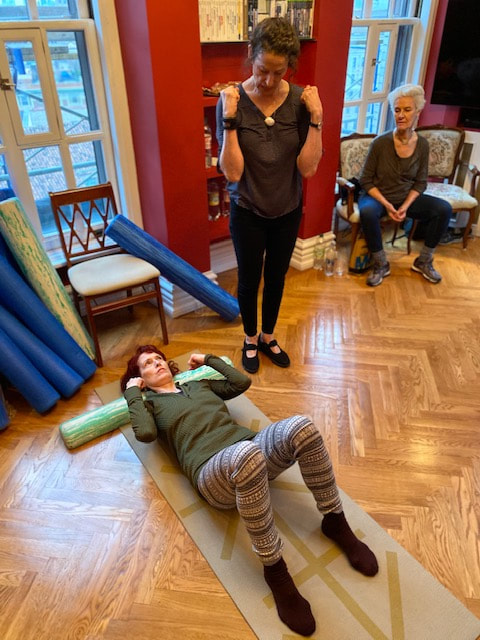
This modern and exclusive workshop is offered to provide insight and guidance to each singer, as well as the tools and a basic understanding of the proper relationship of the singing voice to the body. What most individuals don't realize is that their body is their voice. We are not just talking about the larynx, but about the muscles that support the voice from the ground up. Starting with the singer's position on the floor and posture, our focus is on how they align their body, how muscles we don't see enable an ease of singing and quality of sound.
Singers are mastering an invisible system. Most singers are trained to be aware of their laryngeal position, breath, and resonance, but not how the rest of their body needs to flexibly and continually support their singing. As each singer’s air flows into the resonators and different pitches of each piece, the body needs to constantly react and re-balance in order to support the singing of any musical line. How singers manage their skeleton and the placement of their body weight is crucial to their ability to smoothly balance the changing physical necessities within each aria. Whether it goes higher or lower, faster or slower, legato or staccato, or louder or softer, all of these aspects need proper support in the body.
Founder and instructor of AppliedBodyLogic, Karin Fantus explores support not just from exercise or the muscular and skeletal systems, but also fascia and all the smaller counterbalances. She has had the extraordinary experience of having to put herself back together after an accident, where she really had to learn - in the most practical way - what works and what doesn't.
Maestro Peter Mark also works with singers to find what works and what doesn't in the most practical way. His experience in opera runs the gamut: from singing at the MET (as chief boy soloist in the Glory Years) to conducting opera internationally and building Virginia Opera into a top regional company (where he remains its Artistic Director Emeritus), and now he works with singers regularly in Masterclasses in New York, Los Angelos, and beyond.
The Body Science of the Voice is a unique and innovative collaboration between Maestro Peter Mark and Karin Fantus in which they introduce a full-body vocal technique for a lifetime of singing. With evidence-based wisdom the singer can bring their voice and body into alignment through the exercise and knowledge learned in these classes.
Mark and Fantus have a wealth of knowledge and experience. They each have special sensitivities which they cultivate to deal with the body in specific ways. Fantus, guided by the physical body and its efficient use, and Mark, guided by the vocal tone and musical line, team up to relieve the singer from any tensions, obstructions or misalignments in order to support a tone which is unrestricted and rings freely and naturally.
“We aim to release each singer's true voiceprint – their unique vocal color -- and have them experience for themselves the freedom of their natural voice so they can feel their own richly recycling resonance, where the tone is unrestricted and naturally rings with a full range of under- and overtones. This allows each singer’s natural musicality to blossom. The goal for each of our singers is to assist them in producing their own free beautiful sound that will afford them a lifetime of healthy singing.” - Peter Mark & Karin Fantus
